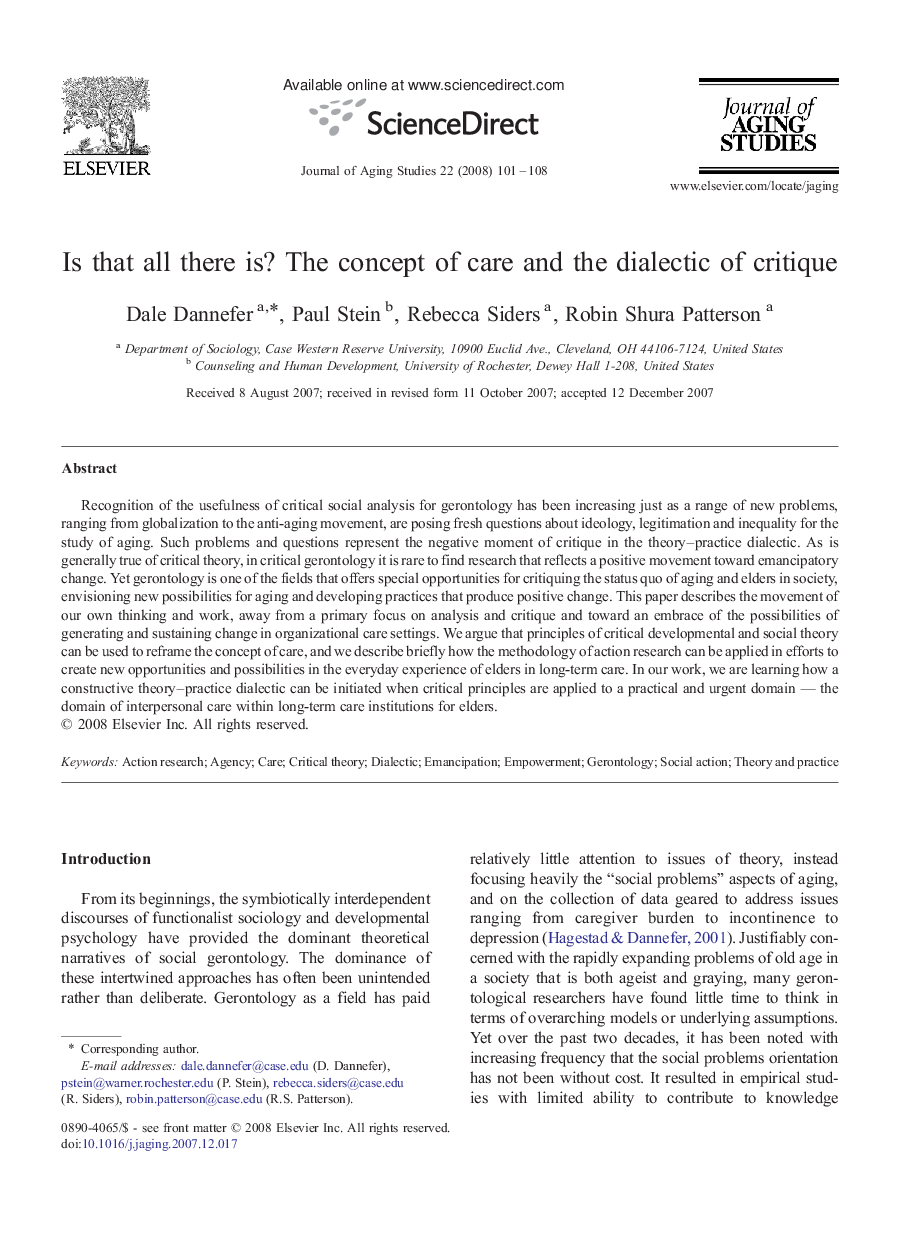| Article ID | Journal | Published Year | Pages | File Type |
|---|---|---|---|---|
| 1082186 | Journal of Aging Studies | 2008 | 8 Pages |
Recognition of the usefulness of critical social analysis for gerontology has been increasing just as a range of new problems, ranging from globalization to the anti-aging movement, are posing fresh questions about ideology, legitimation and inequality for the study of aging. Such problems and questions represent the negative moment of critique in the theory–practice dialectic. As is generally true of critical theory, in critical gerontology it is rare to find research that reflects a positive movement toward emancipatory change. Yet gerontology is one of the fields that offers special opportunities for critiquing the status quo of aging and elders in society, envisioning new possibilities for aging and developing practices that produce positive change. This paper describes the movement of our own thinking and work, away from a primary focus on analysis and critique and toward an embrace of the possibilities of generating and sustaining change in organizational care settings. We argue that principles of critical developmental and social theory can be used to reframe the concept of care, and we describe briefly how the methodology of action research can be applied in efforts to create new opportunities and possibilities in the everyday experience of elders in long-term care. In our work, we are learning how a constructive theory–practice dialectic can be initiated when critical principles are applied to a practical and urgent domain — the domain of interpersonal care within long-term care institutions for elders.
